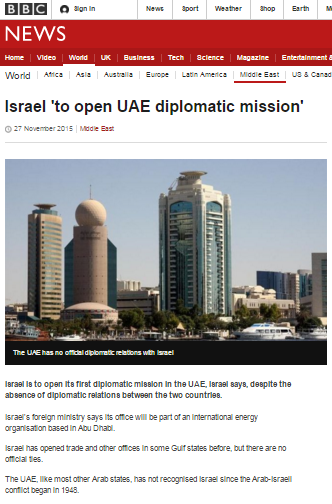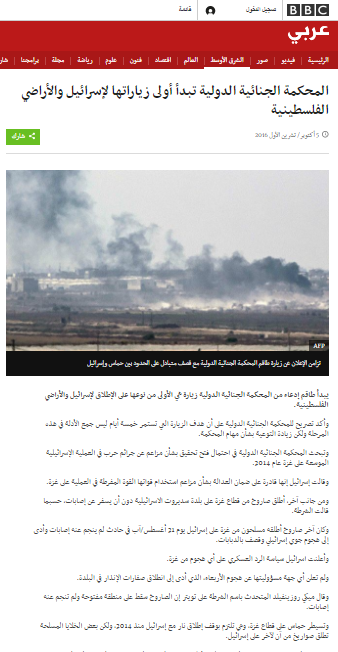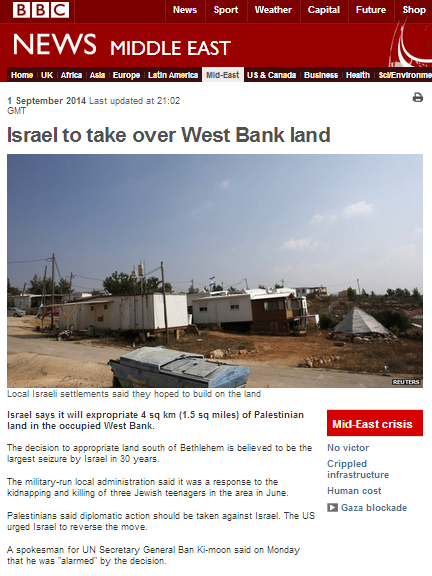An article which appeared on the BBC News website’s Middle East page on November 27th under the headline “Israel ‘to open UAE diplomatic mission’” opens as follows:
“Israel is to open its first diplomatic mission in the UAE, Israel says, despite the absence of diplomatic relations between the two countries.
Israel’s foreign ministry says its office will be part of an international energy organisation based in Abu Dhabi.
Israel has opened trade and other offices in some Gulf states before, but there are no official ties.
The UAE, like most other Arab states, has not recognised Israel since the Arab-Israeli conflict began in 1948.”[emphasis added]
Whilst it is true to say that most Arab states have not recognised Israel since its establishment in 1948, the wording of that sentence inaccurately suggests to BBC audiences that the Arab-Israeli conflict began at the time of – and because of – Israel’s birth, thus erasing important historical context essential to audience understanding of the issue.
However, the BBC knows full well that the Arab-Israeli conflict did not begin in May 1948 – as its own profile of the Arab League indicates:
“The idea of the Arab League was mooted in 1942 by the British, who wanted to rally Arab countries against the Axis powers. However, the league did not take off until March 1945, just before the end of World War II.
At that time the issues that dominated the league’s agenda were freeing those Arab countries still under colonial rule, and preventing the Jewish community in Palestine from creating a Jewish state.” [emphasis added]
Indeed, as has been noted on these pages on a prior occasion:
“That same founding document – dating from March 22nd 1945 – includes an “annex on Palestine”. At its second session in December 1945 the Arab League declared a formal boycott of “Jewish products and manufactured [goods] in Palestine”, declaring them to be “undesirable in the Arab countries” and opining that “to permit them to enter the Arab countries would lead to the realization of the Zionist political objectives”.
Having already rejected the 1947 UN Partition Plan, the day after Israel declared independence the Arab League issued a statement claiming that its members “found themselves compelled to intervene in Palestine solely in order to help its inhabitants restore peace and security and the rule of justice and law to their country, and in order to prevent bloodshed” – even as five of its member countries’ armies were in the process of invading the nascent Jewish state.”
And even before the Arab League was established, the Preliminary Committee of the General Arab Conference produced the Alexandria Protocol in October 1944 which included “a special resolution concerning Palestine”.
Clearly BBC audiences cannot properly understand the factors underpinning the Arab-Israeli conflict if the BBC erases the crucial context of the Arab states’ pre-existing opposition to the establishment of the Jewish national home mandated by the League of Nations even before the State of Israel was founded.




